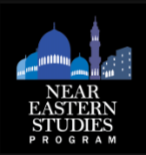Turkish is a fun and beautiful language. Turkish has vowel harmony, which makes it very melodious, and it is an agglutinative language, whose Lego-like structure means that by adding.

Why Study Turkish At Princeton
Turkish Courses
The Program in Near Eastern Studies provides opportunities to study the languages, modern history, and contemporary institutions of the Arab world, Iran, Israel and Turkey, as well as the Islamic World more broadly.
Requirements For Admission
Most students in our program come from the Departments of Anthropology, History, Politics, Religion, Sociology, or the Woodrow Wilson School of Public and International Affairs.
Students from other departments who have an interest in Near Eastern studies may enter the program with the Director’s approval. Students must meet the requirements of the department in which they are concentrating in addition to those of the Program in Near East Studies.
Course Of Study
In general, students follow the plan of study of their home department; for example, students in Woodrow Wilson School earning a PNES certificate select the Near East in the modern world as a field of concentration. Specific requirements of the Program are as follows:
Language: Students who have had no relevant language training will take at least two years of Arabic, Hebrew, Hindu, Urdu, Persian, Turkish or Swahili language as elective courses.
Students are encouraged to begin the study of a Near Eastern language as early as possible in order to enable them to continue it beyond the required minimum and, if desired, to offer it to meet the language requirement for the A.B. degree. The program also encourages qualified students to enroll in summer sessions in Near Eastern languages
History: All students will take, as departmental courses, at least one appropriate history course in the Department of Near Eastern Studies. Students in the Department of History will take at least two such courses.
Social Sciences: All students will take at least two courses treating the islamicate world that are chosen from the offerings of the Departments of Anthropology, Near Eastern Studies, Politics, Religion, and Sociology, and the Woodrow Wilson School.
Junior independent work is divided between the student's department and the program.
The senior thesis is written on an islamicate subject under the supervision of an islamicate specialist in the appropriate department and the Program.
Students take the regular senior departmental examination given by their department, except that a portion of it deals with the islamicate fields studied. These examinations are described in the sections of this catalog for each department.
Certificate Of Proficiency
A student who completes the requirements of the program with satisfactory standing receives a certificate of proficiency in Near Eastern studies. A student who satisfactorily completes study abroad will have this fact noted on the certificate.

With Turkey’s strategic location, the language stretches between Eastern Europe, Central Asia, and the Middle East; making knowledge of Turkish a valuable asset to anyone interested in traveling to those regions or making business stakes aoad.

Turkish Language course is offered by LTC Language Solutions.

Our qualified instructors utilize effective teaching methods to develop students' grammar, vocabulary, pronunciation, listening, speaking, reading, and writing skills in Turkish.

Turkish is a Category language. It takes on average 26 weeks of full-time training to reach a limited working proficiency (ILR level 2). The exact time needed will depend on many factors.

Turkish course is offered by Mesali Language Institute. Our courses are taught by highly qualified and experienced teacher who are extremely dedicated to ensuring you leave with all the necessary skills to broaden your horizons and never be lost for words again.
© 2025 coursetakers.com All Rights Reserved. Terms and Conditions of use | Privacy Policy